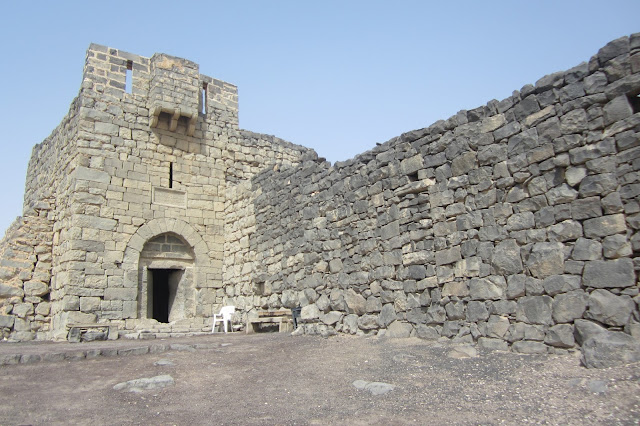Recently I fulfilled a years long quest to visit the Azraq Wetlands Reserve, an oasis and migratory bird stop in the middle of a dustbowl about two hours northeast of Amman. As part of the trip we first also visited the nearby Qasr Azraq, a castle originally built by the Romans in the third century. On the way back home, we stopped for tea in a Bedouin tent set up to serve thirsty travelers like ourselves.
Unfortunately, the wetlands are nothing like they once were. This is due in large part to the results of war, as they started to be drained in earnest to provide water for the hundreds of thousands of Palestinian refugees who fled to Jordan from Israel during and after the 1967 Six Day War. There was simply no other source to tap, and the water was siphoned off faster than it could be naturally replaced. So, while at one point the wetlands covered an area the size of Lebanon, now they cover just about five square miles. In ancient times the wetlands were basically an extension of Africa, housing such animals as rhinoceros, hippopotamuses, elephants, cheetahs and lions. Now, there are no animals there, save for a few water buffalo. A few decades ago, hundreds of thousands of migrating birds could be seen there. Now, though, only around a thousand can be seen. The site is now protected and the government is introducing water back into the area, but much of what was lost is never coming back. In fact, war still threatens Jordan's resources. Perhaps up to a million Iraqis fled to Jordan during the peak fighting in their homeland--many of whom remain. In addition to this, several hundred thousand Syrians are now here, having escaped the civil war in their country. No doubt all these people put quite a strain on the infrastructure here, and test the boundaries of Jordan's limited resources. I was interested to see the little that remained of the Azraq wetlands, but being there and seeing what could have been--and what was--just made me sad.



















